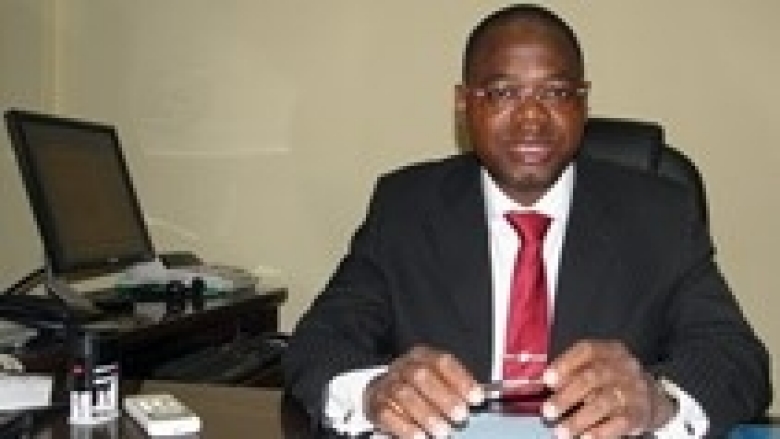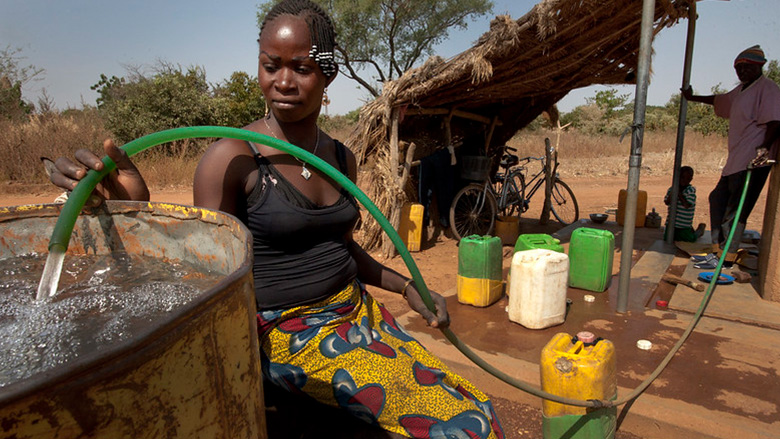Challenge
Catalyzing private sector growth was challenging in Burkina Faso, given the multi-dimensional crises facing the country. Burkina Faso’s private sector was largely informal and dominated by micro, small, and medium enterprises (MSMEs). There were approximately 1.5 million informal enterprises, and 65,000 formal enterprises, of which 500 were considered large (FinScope 2016). Access to finance was the biggest growth constraint for MSMEs. Indeed, only 6 percent of MSMEs in Burkina Faso had an outstanding bank or microfinance institution loan in 2016. The available financing for SMEs typically covered only 16 percent of the total investments needed. Women also remain excluded from the formal financial sector, as at 17 percentage points, Burkina Faso has one of the largest gender gaps in account ownership in the West African Economic and Monetary Union (WAEMU) region.
Approach
Starting in 2020, the FISP established a $35 million partial portfolio credit guarantee to increase access to credit for MSMEs, women, and farmers in Burkina Faso. The risk-sharing instrument helped crowd in financing from the private financial sector by absorbing part of their losses on loans they extended to such groups in case of defaults (for a fee). In June 2021, the instrument was expanded to help firms and farmers weather shocks from the COVID-19 pandemic and climate change. The current endowment of the partial portfolio credit guarantee backed up to $174 million in loans extended by private banks and microfinance institutions. The approach worked well thanks to technical assistance provided by the World Bank, which helped build the capacity of the guarantee fund managers and participating financial institutions, especially for new and under-served markets. The World Bank also facilitated South-South exchanges through technical assistance between Burkina Faso’s project partners and implementing partners from a similar project in Madagascar, thus helping to accelerate implementation in Burkina Faso.
Results
The Partial Credit Guarantee Scheme (PPCG) was a successful partnership between the government of Burkina Faso and the SOFIGIB, a local, non-bank financial institution licensed and supervised by the Central Bank of Burkina Faso (BCEAO). The SOFIGIB encouraged financial institutions to lend to under-served segments such as MSMEs, women entrepreneurs, and farmers by absorbing part of their losses on loans in case of default. The average loan size was about $30,000 for MSMEs, $12,000 for farmers, and $8,000 for women entrepreneurs. This contributed to the World Bank Country Partnership Framework (CPF) objective of facilitating access to inclusive finance, as well as supporting private sector development and agriculture diversification. It also helped to reduce the large gender gap in financial inclusion.
- Since the beginning of the project, 3,000 borrowers (including 1,293 MSMEs, 711 farmers, and 996 women entrepreneurs) have benefitted from the guarantee, receiving about $48.5 million in credit.
- In less than two years, six financial institutions joined the PPCG, and four additional institutions have indicated their interest in participating.
- More than 80 percent of the 3,000 borrowers would not have been able to access bank credit without the PPCG.
- The PPCG generated six percent income from term deposits, contributing to the sustainability of the scheme. The design of the PPCG also aimed to minimize moral hazard and adverse selection.
Bank Group Contribution
The International Development Association (IDA) provided an endowment of $45 million for the PPCG, and the Global Risk Financing Facility (GRiF) provided an endowment for the PPCG of $10 million. IDA also provided $5 million in technical assistance. By early 2022, lending by participating financial institutions had reached $48.5 million.
Partners
The National Treasury and Public Accounting Directorate acts as the overall Project Implementation Unit (PIU). It also serves as the Chair of the PPCG’ Technical Committee in charge of providing: (i) guidance concerning the operations of the PPCG; (ii) assurance that the SOFIGIB implements its Terms of Reference (ToR) as defined in the Agreement that was signed between the Government of Burkina Faso and the SOFIGIB; and (iii) proposals for changes to the SOFIGIB’s ToR, as needed.
The SOFIGIB is a public-private-owned guarantee management company established, licensed and supervised by the West African Economic and Monetary Union (WAEMU) Banking Commission. The SOFIGIB is currently managing the project guarantee fund. The strong relationship between the PIU and the SOFIGIB has been another contributing factor to the achievements of the project to date.
Looking Ahead
The PPCG was created to be a sustainable fund thanks to its design features that sought to minimize adverse selection and moral hazard. Additionally, the income from the term deposits in local banks and the commissions paid by financial institutions covered administrative costs and losses.
Building on the results of the FISP, a planned Entrepreneurship, Skills and Technology project aims to increase the PPCG’s endowment. This will serve new segments, including start-ups, green economy enterprises, and under-served regions. In this context, the neighboring countries of Benin, Côte d’Ivoire and Mali are replicating the PPCG approach that was pioneered in Burkina Faso and Madagascar.
Beneficiary Story/Quote

According to the Interbank Guarantee Financial Company of Burkina (Société Financière de Garantie Interbancaire du Burkina, SOFIGIB) Chief Executive Officer, Phillipe Consigui: “Before the project, the SOFIGIB only provided individual loan guarantees for about 300-400 enterprises per year. Since the introduction of the partial portfolio guarantee, SOFIGIB has supported 3,000 borrowers who will contribute to the creation of decent jobs and incomes in Burkina Faso. Additionally, the partial credit guarantee scheme (PPCG) is opened to microfinance that had previously not been served. MFIs (Microfinance institutions) serve the bottom of the pyramid clientele.”
